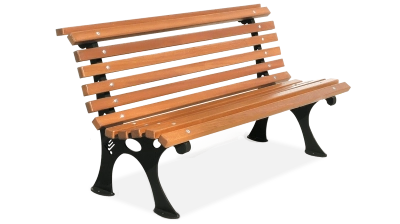ความหมายของคำ bench ในภาษาไทย
bench ในภาษาอังกฤษหมายถึงอะไร? มาร่วมค้นหาความหมาย การออกเสียง และวิธีใช้คำนี้อย่างละเอียดกับ Lingoland
bench
US /bentʃ/
UK /bentʃ/

คำนาม
1.
ม้านั่ง
a long seat for several people, typically made of wood or metal, with or without a back
ตัวอย่าง:
•
They sat on the park bench and watched the children play.
พวกเขานั่งบนม้านั่งในสวนสาธารณะและดูเด็กๆ เล่น
•
The carpenter built a sturdy wooden bench for the patio.
ช่างไม้สร้างม้านั่งไม้ที่แข็งแรงสำหรับลานบ้าน
2.
โต๊ะทำงาน, โต๊ะทดลอง
a long work table in a workshop or laboratory
ตัวอย่าง:
•
The mechanic laid out his tools on the workbench.
ช่างเครื่องวางเครื่องมือของเขาบนโต๊ะทำงาน
•
Scientists conducted experiments at the laboratory bench.
นักวิทยาศาสตร์ทำการทดลองที่โต๊ะในห้องปฏิบัติการ
3.
บัลลังก์, ที่นั่งผู้พิพากษา
the seat where the judges sit in a court of law
ตัวอย่าง:
•
The lawyer approached the bench to present his arguments.
ทนายความเดินเข้าไปใกล้บัลลังก์เพื่อนำเสนอข้อโต้แย้งของเขา
•
The judge took his seat on the bench.
ผู้พิพากษาขึ้นนั่งบนบัลลังก์
4.
ม้านั่งสำรอง, ตัวสำรอง
a position on a sports team for players who are not currently playing in the game
ตัวอย่าง:
•
The coach decided to keep the star player on the bench for the first half.
โค้ชตัดสินใจให้ผู้เล่นดาวเด่นนั่งอยู่บนม้านั่งสำรองในช่วงครึ่งแรก
•
He was frustrated being on the bench and wanted to play.
เขาหงุดหงิดที่ต้องนั่งอยู่บนม้านั่งสำรองและอยากลงเล่น
คำพ้องความหมาย:
กริยา
1.
ให้สำรอง, เปลี่ยนตัวออก
to remove (a player) from a game; to put (a player) on the bench
ตัวอย่าง:
•
The coach decided to bench the struggling forward.
โค้ชตัดสินใจให้กองหน้าที่มีปัญหานั่งสำรอง
•
He was benched after making several errors.
เขาถูกเปลี่ยนตัวออกหลังจากทำผิดพลาดหลายครั้ง
คำพ้องความหมาย:
2.
เปรียบเทียบประสิทธิภาพ, ทดสอบมาตรฐาน
to test (a product or system) against a standard or against the performance of a competitor
ตัวอย่าง:
•
We need to bench our new software against the industry leader.
เราต้องเปรียบเทียบประสิทธิภาพซอฟต์แวร์ใหม่ของเรากับผู้นำในอุตสาหกรรม
•
The company regularly benches its products to ensure competitiveness.
บริษัทเปรียบเทียบประสิทธิภาพผลิตภัณฑ์ของตนเป็นประจำเพื่อให้แน่ใจในการแข่งขัน
คำที่เกี่ยวข้อง: